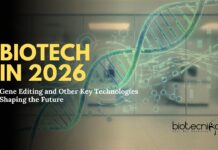Anti-Aging Stem Cells: A New Hope for Slowing Aging in Primates
What if we could actually slow down the aging process? Ever wondered about this? For decades, scientists have wished to unlock the secrets of longevity – not just adding years to life, but adding healthy years. Now, a remarkable study proposed that genetically engineered stem cells may hold the key.
Rewriting the Rules of Aging
Aging wears down our bodies by weakening stem cells, the base of tissue repair and revival. When these cells lose their liveliness, the result is long-term inflammation, weakness, memory loss, and organ decline. But a team of researchers has taken a bold step forward by creating senescence-resistant human mesenchymal progenitor cells (SRCs) – a type of “super stem cell” engineered to withstand the wear and tear of time.
Testing in Primates, Not Just Mice
The groundbreaking part? This isn’t another mouse study. Scientists tested SRCs on aged macaques over 44 weeks, and the results are nothing short of extraordinary.
When these specially engineered cells were delivered intravenously, the macaques (a forest-dwelling Old World monkey) showed:
- Lesser signs of cellular aging and chronic inflammation
- Healthier tissues and organs with less declination
- Improved brain function and better mental function
- Renewed reproductive systems, fighting age-related decline
What’s more promising is that no adverse effects were observed, making this one of the most fascinating demonstrations of anti-aging stem cell therapy in primates to date.
The Secret Weapon: Exosomes
Part of the magic comes from tiny exosomes that are released by SRCs (a family of proteins that function as tyrosine kinases, playing crucial roles in cell growth, adhesion, and movement). Think of exosomes as molecular messengers that help nearby cells resist aging. By broadcasting anti-aging signals, SRCs not only survive longer but also help the entire cellular neighborhood thrive.
Why This Matters
For years, scientists have wondered whether restoring stem cells can actually slow down the aging process. This discovery is the first strong evidence that genetically modified stem cells can restore health in primates.
The future outcomes are astonishing: if these results apply to humans, therapies based on SRC could one day help us combat age-related diseases, maintain mental alertness and intellectual keenness, and enhance reproductive health. It’s not immortality, but it’s a step toward reimagining the aging process.
The Road Ahead
Of course, the journey from macaques to humans will be done and regulated carefully. Questions that remain: How long-lasting are the benefits? Are repeated doses needed for this? Could there be hidden risks after decades? Still, this looks brighter than ever for regenerative medicine.
Scientists have developed “age-resistant” stem cells that actually slowed aging in primates. Fascinating study indeed! If future studies confirm that these findings apply to humans, we may be entering an era where aging itself can become a treatable condition. Hopefully it actually does!“ It could mark the beginning of a future where growing old no longer means growing frail.”























